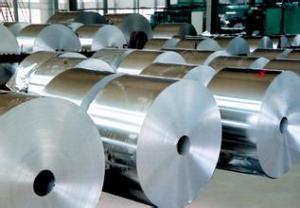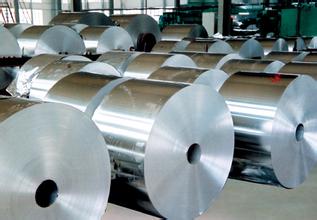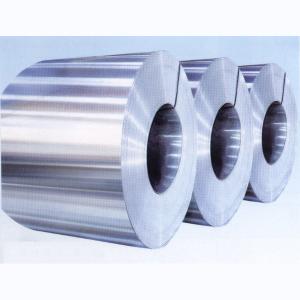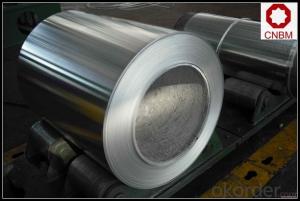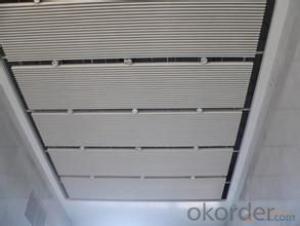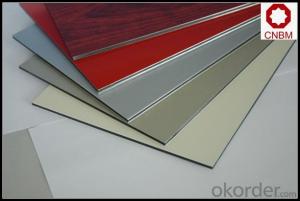AC Outdoor Unit Aluminum Coil Price - Aluminum Coil
- Loading Port:
- China Main Port
- Payment Terms:
- TT OR LC
- Min Order Qty:
- -
- Supply Capability:
- -
OKorder Service Pledge
Quality Product, Order Online Tracking, Timely Delivery
OKorder Financial Service
Credit Rating, Credit Services, Credit Purchasing
You Might Also Like
ALLOY: AA1***
AA3***
AA5***
TEMPER: H14 H16 H18 H22 H24 H26 H32 O/F
THICKNESS:0.03MM-3.0MM
WIDTH: 30MM-1700MM
COATING: PE(POLYESTER),PVDF,EPOXY
STANDARD: GB/T 17748-1999
- Q: Describe the various types of coatings applied to steel coils and their applications.
- <p>Steel coils can be coated with several different types of materials to enhance their properties for various applications. Common coatings include: 1) Galvanized coating, which provides corrosion resistance and is used in construction and automotive industries. 2) Pre-painted or color-coated steel, which is coated with organic paint and used for aesthetic purposes in buildings and appliances. 3) Aluminized coating, offering high-temperature resistance and used in heat-treating processes. 4) Zinc-iron alloy coating, which combines the benefits of zinc and iron for enhanced corrosion protection. 5) Organic coatings such as epoxy or polyurethane, used for specific chemical resistance or additional protection in harsh environments. Each type of coating is chosen based on the specific requirements of the end product and the environmental conditions it will face.</p>
- Q: How are aluminum coils joined or welded?
- Aluminum coils are usually joined or welded using various methods such as resistance welding, TIG (Tungsten Inert Gas) welding, MIG (Metal Inert Gas) welding, or laser welding. These techniques involve applying heat and pressure to melt and fuse the aluminum coils together, creating a strong and durable joint.
- Q: Can aluminum coils be used in building facades?
- Yes, aluminum coils can be used in building facades. Aluminum is a popular material choice for building facades due to its numerous benefits. It is lightweight, durable, and corrosion-resistant, making it suitable for exterior applications. Aluminum coils can be formed into various shapes and sizes, allowing for creative and versatile design possibilities. Additionally, aluminum is available in a wide range of finishes, including anodized, painted, and coated, providing further customization options for building facades. Moreover, aluminum is a sustainable material as it is 100% recyclable, making it an environmentally friendly choice for construction projects. Overall, aluminum coils are a viable option for building facades, providing both aesthetic appeal and functional performance.
- Q: What is the maximum width-to-thickness ratio for aluminum coils?
- The maximum width-to-thickness ratio for aluminum coils is influenced by various factors, including the specific alloy, temper, and intended application. Industries like construction, automotive, and packaging commonly employ aluminum coils, which may necessitate different width-to-thickness ratios. Typically, the width-to-thickness ratio for aluminum coils ranges from 100:1 to 200:1. However, it is crucial to recognize that this range can fluctuate depending on the specific alloy and temper. Thicker coils generally possess a lower width-to-thickness ratio, while thinner coils may have a higher ratio. High-strength alloys, particularly those utilized in aerospace applications, typically exhibit lower width-to-thickness ratios due to their heightened strength requirements. Conversely, coils used in less demanding applications might have higher width-to-thickness ratios. To determine the appropriate width-to-thickness ratio for a specific aluminum coil, it is essential to consult relevant industry standards, specifications, or manufacturer guidelines. These guidelines take into account the intended use, mechanical properties, and performance requirements, ensuring that the coil is suitable for its intended application while maintaining structural integrity and functionality.
- Q: ok-so lately I've noticed that everytime i wrap food in aluminum foil it starts to eat tiny holes in it! so far it has happened when I put it on chicken breasts and froze them--over a warm eggplant parm that i put in the fridge and now, today on coleslaw--which was never hot! what the heck is going on? I've never seen this before! any ideas? it is a name brand foil too...tx!
- Was there tomato in it? You cannot put tomato or acidic things on aluminum foil (or at least you are not supposed to. Don't use foil to store foods that are high in acids. This means tart fruits and dishes made with vinegar, tomatoes, or tomato sauce. After a few days in foil, the acids in lasagna, for example, interact with the aluminum and erode the foil.. Small amounts of aluminum can then migrate into the food, creating both pinprick holes in the wrap and a metallic taste in the lasagna. Also, white spots (actually aluminum salts) can form on these foods when their acidity reacts with the aluminum. Theoretically you can cut these spots away; they're not harmful. But they are certainly not appetizing either, so stick to plastic storage for the acidic goods. I got the above paragraph from aluminum foil Do's and Don'ts
- Q: Are aluminum coils available in custom sizes?
- Indeed, custom sizes for aluminum coils are readily obtainable. Aluminum coils exhibit great versatility and can be produced to satisfy particular size specifications. This adaptability enables their utilization in a diverse array of industries. Be it for HVAC systems, transportation, construction, or any other purpose, aluminum coils can be specifically tailored to suit the unique requirements of any given project. The provision of custom-sized aluminum coils guarantees an impeccable fit and outstanding performance, thereby promoting enhanced efficiency and cost-effectiveness.
- Q: Are aluminum coils suitable for gutter systems?
- Yes, aluminum coils are suitable for gutter systems. Aluminum is a popular choice for gutter systems due to its durability, lightweight nature, and resistance to rust and corrosion. It is a cost-effective option that can withstand harsh weather conditions and has a long lifespan. Additionally, aluminum coils are easy to install and maintain, making them an ideal choice for gutter systems.
- Q: Describe the manufacturing steps involved in producing aluminum coils.
- <p>The production processes of aluminum coils involve several key steps. Initially, aluminum ingots are melted in a furnace. The molten aluminum is then transferred to a casting machine where it is cast into a continuous strip. This strip is cooled and passed through a series of rollers to reduce its thickness and achieve the desired coil gauge. The rolling process can be hot or cold, depending on the final product's properties. After rolling, the aluminum coil may undergo annealing to improve its ductility and strength. It is then cleaned, oiled, and wound into coils. Quality control checks are performed throughout the process to ensure the coils meet specific standards. Finally, the aluminum coils are packaged and shipped for various applications such as construction, automotive, and packaging industries.</p>
- Q: What is the flexural strength of aluminum coils?
- The flexural strength of aluminum coils can differ based on several factors, including the alloy employed, tempering procedure, and coil thickness. Generally, aluminum alloys showcase commendable flexural strength, rendering them appropriate for applications necessitating bending or flexing. Nevertheless, it is crucial to acknowledge that the flexural strength of aluminum coils is typically inferior to that of steel or other metals. To ascertain the precise flexural strength of a particular aluminum coil, one must consult the manufacturer's specifications or perform specific tests in compliance with applicable standards.
- Q: Are aluminum coils easy to bend and shape?
- Aluminum coils, being a malleable metal, can be easily bent and shaped. This characteristic makes them ideal for various shaping and forming tasks. Different techniques like rolling, bending, or pressing can be employed to manipulate aluminum coils, making them applicable in industries such as construction, automotive, and manufacturing. However, the ease of bending and shaping may vary depending on the specific alloy and thickness of the coil. Thicker coils may necessitate more force and specialized equipment, and different alloys may exhibit varying levels of malleability. In conclusion, aluminum coils present a versatile and relatively uncomplicated material for bending and shaping purposes.
Send your message to us
AC Outdoor Unit Aluminum Coil Price - Aluminum Coil
- Loading Port:
- China Main Port
- Payment Terms:
- TT OR LC
- Min Order Qty:
- -
- Supply Capability:
- -
OKorder Service Pledge
Quality Product, Order Online Tracking, Timely Delivery
OKorder Financial Service
Credit Rating, Credit Services, Credit Purchasing
Similar products
Hot products
Hot Searches
Related keywords
